NPR board passes ambitious plan to expand digital fundraising, podcast subscriptions
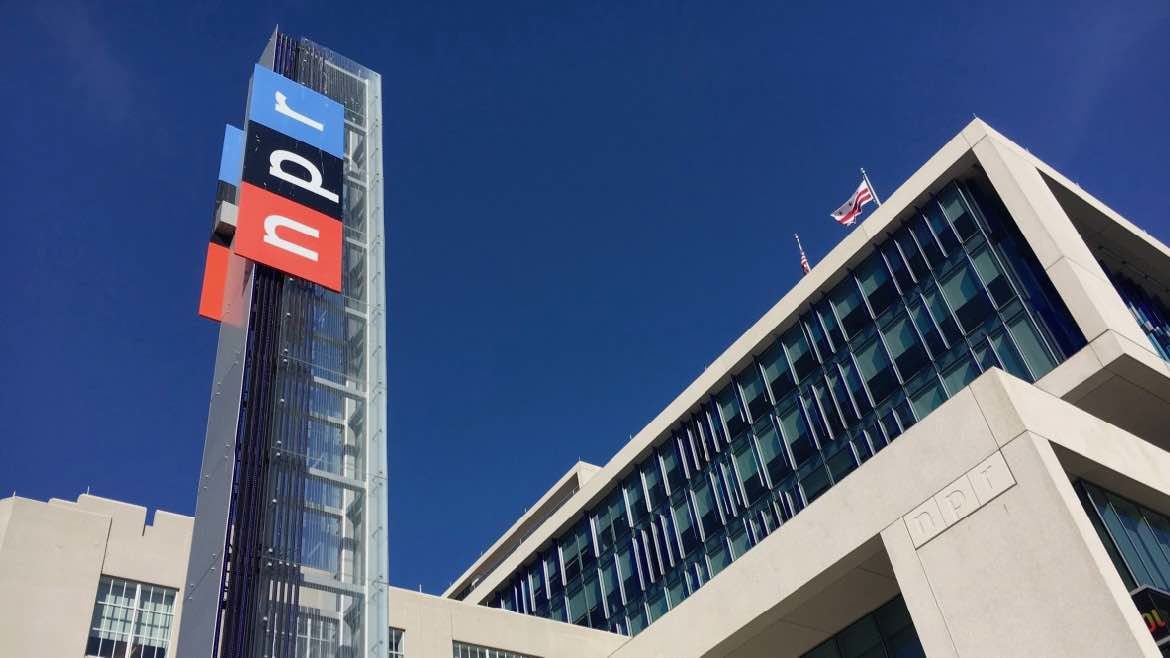
April Simpson / Current
The NPR board of directors approved an ambitious plan Friday for the network and its member stations to work together on a host of new digital initiatives, including a forthcoming podcast subscription bundle tied to station membership.
The plan, titled the “NPR Network,” directs NPR to use its digital properties to funnel donations and donor leads to member stations and implement new collaborative initiatives around branding and sponsorship. The goal of the plan is to double station membership and total revenue for NPR and participating member stations by 2030.
NPR sees opportunity for donor growth, especially on digital platforms. Of the 53 million people who engage with NPR’s platforms each week, only about 5% donate to local stations. Meanwhile, less than 1% of NPR’s 20 million weekly digital users give, said NPR CDO Leora Hanser during the Friday board meeting. That audience skews younger and more diverse than NPR’s broadcast audience, Hanser said.
The new plan is the most comprehensive collaborative initiative to date aimed at addressing the challenges public radio faces on digital platforms, such as reaching new audiences and facing increased competition in podcasting. The plan also attempts to address the problem of public radio’s stagnant donor base.
“This is really the first step in the next 50 years of NPR,” NPR CEO John Lansing said during the board meeting.
The public radio system “is stagnant on new membership, relying on twice-a-year radiothons,” Lansing said. “It’s not marketing opportunities for membership to any of our 20 million digital listeners and users. And it’s our intent to invest up to $10 million–plus to make this work and make it happen on behalf of the stations. We believe the strength of NPR is the stations, and we believe us investing in the stations is the smartest thing we can do for the future of NPR.”
NPR and stations have previously made efforts to increase and share donor revenue. Some have faltered, in part because stations have been wary of NPR’s motives. Rachel Hubbard, executive director of KOSU in Stillwater, Okla., and member of a working group that gave NPR feedback on the plan, told Current she supports the new initiative but pointed out the challenge posed by the “historic distrust” between NPR and stations.
“I’m a little nervous that we can get everybody moving in the same direction, because we’ve always been a little more federated than functioning as a network,” she said. “But I think if we can do it, then I think it could be really powerful.”
If the public radio system is leaving money on the table from people who know about NPR but aren’t familiar with a station, Hubbard said, “we’re not helping ourselves by circling the wagons and saying … ‘This is mine, and you can’t touch it.’ Then we may quickly be passed by people who are able to be more nimble and responsive to audiences in the digital space.”
‘Cautious optimism’
The NPR Network initiative grew out of ideas stations have presented to NPR over the years about ways the network can work with stations, NPR Board Chair LaFontaine Oliver wrote in an April email to station leaders.
Board members began working with staff last year to develop the ideas. In January, the board convened a working group of station leaders to review its work and provide feedback on the concept.
NPR and board members have since been hosting webinars to share the plan more broadly with stations. Board members were making tweaks to the plan up until Friday’s vote.
NPR and the board began publicizing the plan to stations before the vote because “people are going to want clarity on the details, which we’re working on. But we also thought one of the worst things we could do is stay … with a smaller group, work all of the details out and then come talk about something fully formed,” Nico Leone, a board member and CEO of KERA in Dallas, told Current earlier this year.

“We’ve been really pleased by the reaction,” he said. “I think there’s a lot of cautious optimism. I think for folks who have been around for a while that this feels possible, and it feels like it could be good for everyone.”
The approved plan, which was shared with Current, covers podcasts, sponsorship, branding and donations. For listeners, the headlining item is a podcast bundle that will offer all NPR podcasts ad-free. Listeners will only be able to access the ad-free bundle by becoming a member of an NPR station. NPR plans to roll out the bundle before the end of the year.
The plan alludes to other possible subscriber benefits but does not give specifics. In an interview with Current earlier this year, Joel Sucherman, NPR’s VP of audio platform strategy, said those could include giving subscribers exclusive access to live events and to new content before it’s released for all listeners.
Another perk could be special access to Tiny Desk Concert content, said Bryan Moffett, COO of National Public Media and NPR’s SVP for network growth, who also spoke with Current earlier this year.
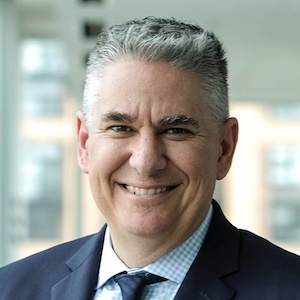
NPR has already begun offering subscriptions to individual podcasts. In surveys it has conducted with those subscribers, “the number-one thing that they asked for was content and bonus content or early access or windowing,” Sucherman said. “That’s where we’re trying to balance the idea of — how do we ultimately make that content available for everybody while still providing a real benefit to the users?”
In those surveys, subscribers “started talking about the bundle even before we asked them about it,” Sucherman said.
While current NPR podcast subscriptions are available only through Apple and Spotify, the bundle will be available only through an NPR-managed service, Sucherman said.
NPR and station content are intertwined for public radio’s broadcast audience, but their brands are “disjointed” on digital platforms, Moffett said.
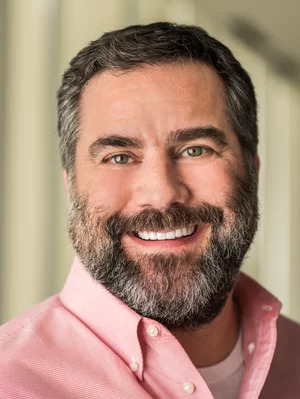
“I know stations have really strong brand identities in their community, and that’s really important,” Moffett said. “But through the NPR Network, what we’re hoping is that there will be some way for users to understand that all these things are related somehow.”
Young audiences in particular “demand a clear brand with core values that they can believe in,” the planning document says. “We need to bring branding discipline and focus to win the hearts and minds of future audiences.”
One way the plan will attempt to connect NPR and station brands more closely is through a public-facing podcast network. All NPR podcasts will be in the network in addition to any podcasts stations want to include in the network. The idea isn’t for NPR to begin distributing station podcasts that are part of the network, Moffett said. Rather, he sees it as a “background brand,” such as “NPR’s Planet Money, part of the NPR network,” he said.
“But it could also be ‘WHYY’s The Pulse, part of the NPR Network,’ which could help users understand that connection, which we think could also help make them understand the need for the support for that whole thing, which includes the network and the local stations,” he said.
Additionally, podcasts participating in the network will cross-promote each other, with NPR podcasts promoting station podcasts and vice versa. According to the plan, NPR will promote podcasts from stations at “2x the rate that stations promote NPR national shows.”
NPR plans to invest $1 million in a paid advertising campaign this fall to promote the NPR Network initiative.
According to the approved plan, NPR will also continue its work on developing a “single, unified app,” which it says will be the “best place to experience the network, including the best place” to experience the podcast subscription bundle.
“You’ll continue to see the evolution of what’s called NPR One today,” Sucherman said. “Over the next several months and the next year or two, we’re really thinking about that as a place where … these network efforts come together and a place that each station can call its own as well, to really feel like it owns the experience of NPR One as much as NPR.”
In addition to revenue from the podcast bundle, the plan calls for two more ways to raise funds. It specifies “a streamlined donation experience on NPR platforms” that will prompt donors to give to either a local station or to the NPR Network.
For donors that give to the NPR Network, the plan says that unrestricted funds will go to either NPR Network infrastructure, NPR member stations or both. NPR management will propose to the board each year how the money will be used. Restricted funds will support specific NPR Network projects that will be determined by NPR and station leaders.
Donors’ contact information will be shared with member stations when they give to the NPR Network. If a donor already gives to a station or stations, those stations will receive data that the donor provides to the NPR Network. If the donor has not given to a member station, their data will be shared with the “station or stations with the highest geographical relevance to the donor,” according to the plan. NPR will also “steward the donor.”
The purpose of this new digital giving model is “to drive acquisition of new station members among engaged consumers of NPR digital content who have never financially supported our mission or a Member station, and not to seek NPR Network members at the expense of existing station membership,” according to the plan.
NPR has also recently launched a digital audio exchange as part of the initiative in order to provide stations with revenue for unsold podcast sponsorship inventory.
In the exchange, participating stations link their ad servers to automatically send unsold inventory into the exchange and receive a passive revenue stream. For now, the unsold inventory will be sold by National Public Media. Eventually, participating stations are expected to be able to sell inventory from NPR and other stations in their local markets, according to the document laying out the plan.
At least $4.3 million in station podcast sponsorship units are unsold each year, according to the document. “That does not include podcasts or streams from all stations, just the portion into which NPM has insight,” the document said.
Station impact
As they unanimously approved the NPR Network plan Friday, NPR board members also agreed to suspend policies in the network’s bylaws that prevent NPR from soliciting individual contributions. The policy preventing NPR from fundraising directly from individual donors will be eliminated in five years unless the board takes action to restore it.
After the board’s vote, some station leader board members said the decision was difficult. Joe O’Connor, CEO of WFAE in Charlotte, N.C., acknowledged that the plan lacks detail about its potential effect on day-to-day operations at stations.
“I think there’s confusion because a lot of the answers legitimately are ‘Don’t know, not sure,’” O’Connor said. “So there’s a part of this that has to be a leap of faith.”
But O’Connor said he voted for the plan because “this is about finally getting the digital users that right now are exclusively NPR digital users to become our members, to get that data, to be able to cultivate them and get new members that way,” he said.
Preceding the vote, board members heard readings of statements from Oregon Public Broadcasting CEO Steve Bass and Michael Brasher, GM of KANW in Albuquerque, N.M., who criticized the board for lacking transparency about the plan.
“Nearly all of the NPR board’s business now and in the past is done in executive session with short public sessions, consisting mostly of scripted readouts,” Bass wrote in his letter. “With the issue at hand today, NPR member organizations have only a vague outline of what is being proposed and what will be decided, even though it has a significant impact on all of us.”
Bass said he recognized that some items must be confidential, “but it is fair to expect a higher level of transparency from NPR than has been historically practiced. The NPR Network will not succeed without higher levels of trust with its member organizations, and without transparency and accountability, trust is harder to create and maintain.”
Brasher wrote that member stations were not provided with specific details about the changes to the fundraising policy, excluding them from “meaningful discussion in consultations with each other and with the NPR board members who are elected to represent the stations. … There should not be any suspension of the existing policy without a well-articulated justification.”
Brasher said it is “entirely unwise” that there are not “criteria and priorities for determining how the NPR board would allocate” the expected new funds from donors. And he added that “other major public media stakeholders have not been fully engaged and consulted by NPR” and that joint licenses don’t have information “to explain how the NPR network proposals are mutually beneficial, or at least not affirmatively harmful to the public television part of our shared enterprise.”
Board members, including Oliver, acknowledged concerns about transparency. “We absolutely need to work on figuring out how we do more of this work so that the system is in earlier,” Oliver said.
Station leaders who served on the working group and support the NPR Network concept also acknowledged in interviews with Current that many details remain to be resolved. They also point to obstacles to overcome, such as new workflows to navigate and a legacy of weak trust between NPR and stations.
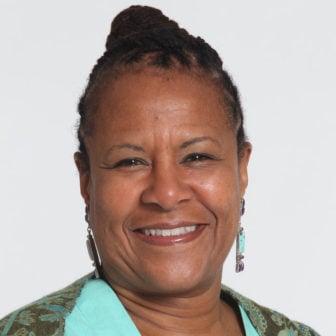
Caryn Mathes, GM of KUOW in Seattle, said that she is “thrilled that we’re finally trying this.”
“Some of us have been asking for one or more components of this broad package for a long time,” she said.
Mathes is aligning her station’s strategic goals with the goals laid out in the NPR Network initiative, she said. To reach the goal for 2030, the station would have to double its 52,000 active members and $19 million in total revenue in 2022. That would be a “massive game-changer” for the station, she said.
Mathes is hopeful that it can happen based on her experience working with NPR on a streamlined giving pilot that prompts users of NPR digital products to give to NPR member stations. The pilot led to 131 donations to KUOW in FY21 and 599 donations in FY22, more than half of which were new donors to the station, according to Mathes. The effort raised more than $90,000 combined in the two fiscal years, Mathes said.
To participate in the pilot, the station had to process donations using Stripe, which will also be used by stations participating in the digital fundraising efforts of the NPR Network. The station had a “pretty big arm-wrestle with our university licensee” to be able to use it, because the university’s compliance office “wants to play it safe,” Mathes said. But now that the station has successfully navigated the process, KUOW Research Director Elizabeth Hovance is offering to guide stations through it with their university licensees, Mathes said.
Despite the Stripe hurdle, the pilot has been “really effective,” she said.
Mathes said she’s noticed that some station managers are “uncomfortable” with the plan because “they want an absolute answer. And it’s like, hey, we’re going to have to try it and adjust and refine and repeat.”
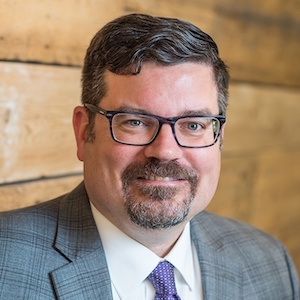
Scott Finn, CEO of Vermont Public, said the plan is “totally the right idea. Together we are much more impressive than apart.”
“I laud them for doing it,” he said. “I wish they had done it 10 years earlier, but better late than never.”
The “biggest promise” of the NPR Network initiative is to take the “collaborative relationship that we have in broadcast and finally attempt to bring that into the digital space,” Finn said.
“NPR One was, I think, a successful attempt, but a relatively small one, to try to replicate that experience in the digital world,” he said. “But in podcasting, people have a very different experience. In the podcasting world, it’s almost like we’re not even related to each other.”
But one challenge he foresees is the additional investments that NPR and stations will need to make for the initiative to be successful. “I don’t know if all NPR stations are ready for the additional work that might be created through this, and not just NPR stations, but NPR itself,” he said. “Pulling this off is going to take an investment in resources internally inside NPR, including more staff added to this NPR Network proposal.”

Rima Dael, an NPR board member and GM of WSHU in Fairfield, Conn., said that she sees the plan as a way to support station fundraising capacity. “Many of us have potential revenue that’s left out there that we can’t tap because we don’t have the capacity,” she said.
The station has also seen benefits of the network effect. Its podcast Everytown was platformed and suggested on the NPR One app. The “exponential growth” of downloads of that podcast was “amazing,” Dael said.
“We couldn’t have done that kind of outreach or reached that kind of audience, really, without the help of the NPR platform,” she said. But she added that “a lot of continued trust-building” needs to happen between member stations and NPR.






Is Grove fully accessible to all member stations?
Is NPR.org running on Grove?
If the answer to either of those is “no” then…well…yawn. Whatever. More lofty rhetoric with no real action behind it. There are a thousand and one concrete steps NPR could be taking to improve the operations/relations with member stations yet they consistently refuse to do so. I can’t believe it’s not intentional; just buying time until the day NPR central no longer needs member station fees to survive and they can just cut ’em all loose.
Fantastic piece – I’m interested to see where the NPR Network goes from here. Thanks for the great reporting!